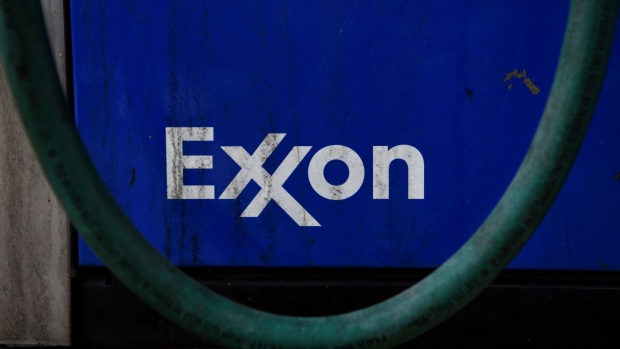Jan 26, 2021
ExxonMobil Needs a Wind-Down Strategy
, Bloomberg News

(Bloomberg Businessweek) -- Compare these two press releases from Exxon Mobil Corp. seven months apart and decide if the oil giant has a coherent strategy:
April 7, 2020: It’s cutting 2020 capital spending 30%, to about $23 billion. “The largest share of the capital spending reduction will be in the Permian Basin.”
Nov. 30, 2020: It’s cutting 2021 capital spending to a range of $16 billion to $19 billion, then raising it to $20 billion to $25 billion annually through 2025. It “will prioritize near-term capital spending on advantaged assets with the highest potential future value, including developments in Guyana and the U.S. Permian Basin.”
What changed between April, when the Permian Basin was the focus of investment reductions, and November, when ExxonMobil said the Permian Basin was an “advantaged” asset with “the highest potential future value”?
One legitimate answer is that oil prices rose. Prices in the spring were so low—just over $20 a barrel—that ExxonMobil executives felt they needed to cut costs somewhere to preserve short-term profitability. It’s easier to ramp up and down investment in shale oil than in deep-water projects that take years to come on line. ExxonMobil is a major investor in the shale-rich Permian Basin, which is in West Texas and southeastern New Mexico. The April press release stressed that the Permian cut was strictly temporary.
By November, West Texas Intermediate crude was back above $40 a barrel, so ExxonMobil was able to refocus on the Permian—while continuing to invest in fields off the coast of Guyana, which is east of Venezuela on South America’s Caribbean coast. The company recently found oil off the cost of Suriname, which is east of Guyana, and is also exploring in deep waters off Brazil.
To ExxonMobil’s critics, though, it’s a mistake to fiddle with low-cost Permian production while sticking doggedly to long-term, high-cost projects. Oil, they say, is a short-term play. “Oil companies will profit in the short run—to 2025 or thereabouts thanks to OPEC’s efforts” to restrain production, Philip Verleger, a veteran oil economist, writes in an email. “Beyond 2025 there is nothing but darkness for oil.”
In the past, a rise in the price of oil would have demonstrated the need for more investment in crude production. Now, Verleger writes, “Higher prices will hasten the move away from fossil fuels. The change will occur because the costs of alternatives are falling fast.” ExxonMobil should focus on quick-return fracking projects “to tide the world over to 2030 and keep prices below $100,” he writes. “Long-lived projects should be stopped. Current production should be maximized.”
The emails amplify and extend a message Verleger delivered in an online opinion piece this month for Energy Intelligence Group Inc.: “The world is not running out of oil and new low-cost resources have been found, turning the high-cost investments pursued by the majors into financial millstones,” he wrote.
On Dec. 7, 2020, a dissident shareholder group calling itself Engine No. 1 LLC wrote to ExxonMobil’s board proposing four new directors and urging the company to avoid “aggressive spending.” The letter said, "The company’s total return to investors from 2010 to 2020 had been a negative 20%, while the S&P 500 had rewarded investors with a return of 277%.” ExxonMobil actually had a negative return on capital employed for upstream projects—i.e., exploration and production, the letter said.
Engine No. 1 has the support of the California State Teachers’ Retirement System. Together their stakes represent about 0.2% of ExxonMobil’s shares, which is far from enough to frighten the board—unless they start persuading other big holders to join their cause.
This is a big comedown for ExxonMobil, which was known for its investment discipline. The company traces its roots to 1870, when John D. Rockefeller and associates founded Standard Oil Co. (Ohio). The Standard Oil trust was broken up by the U.S. Supreme Court in 1911. Exxon merged with Mobil in 1999 based on the belief that oil companies needed to be huge to invest in remote, costly projects. Now, bigness is no asset. Even small companies can extract oil from shale fields. Writes Verleger in his Energy Intelligence piece, “The deconstruction of the multinational oil companies has begun.”
©2021 Bloomberg L.P.